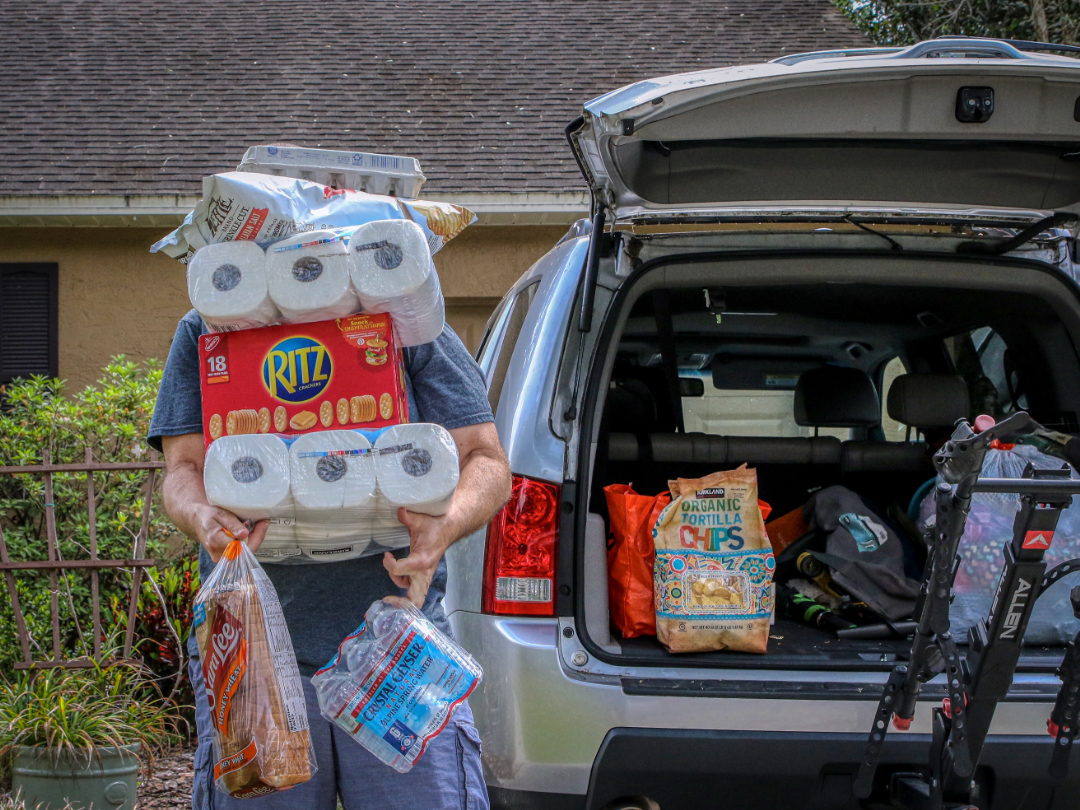
Get Creative With Lists
Lisa - March 6, 2024
When you think of a list, you probably think of one of two things—a to-do list or a grocery list. While these (along with a calendar) are the basis of good family organization, lists have so much more potential; it just takes some creativity. Here are some ideas to make your lists even more versatile.
Non-food Shopping
Every family needs groceries, but it's useful to have different lists for other things you need to buy as well. For example, write down what kind of clothes the kids have grown out of, using sections to organize it by child. Make a list of what your freshman needs for their first year of high school, or the garden tools you need to tackle the new season.
Categorical To-do
Family Tools Tasks is a great place for regular chores and to-do's, but what if you have a big cleaning project that you don't want to saturate your family's day-to-day duties? Put it in the Lists tool! A deep cleaning list could include items like "Organize medicine cabinet" and "Wipe light fixtures" with a section for each room in the house, or maybe sorted by who should take care of each one.
Packing List
This is honestly not a hard application to think of, but no less useful to a busy family. Whether for a vacation that includes every family member or a sleepover for just one child, a list of things to bring along and a way to check off what's already packed is vital. And for trips that have a lot to keep track of, don't forget to link everyone's packing lists to the calendar event using Plans!

Smaller Events
It doesn't take an overnight stay for you to find use in a list of needed supplies. You can also use Lists to keep track of things to bring to work, school, a party, or a service project. Small events like these benefit just as much from good organization as long ones.
Wish List
Lists are great for tracking what you hope to get for your kitchen, your garden, your hobby, or anything else that seems lacking. You could make sections for how expensive each wish is, or your priorities of what you want to buy sooner versus later. And of course, Family Tools excels at letting you create birthday and Christmas lists that are easy to share and preserve surprises.
Inventory
If you have a hard time keeping track of what's stored in the garage, or how much pasta you have in food storage, then an inventory list could help your family. In places where things are stored in opaque boxes, you could have a section for each box, and then list the items within it. An emergency supply list could be checked off by default, then unchecked when you need to buy more of that thing.
Spare Time List
Do you ever find yourself with an unexpected spare half hour and wonder how you could fill the time productively? Try making a spare time to-do list. Items could scale from "Wipe down the kitchen window" if you have ten minutes, to "Practice the piano" if you have thirty, to "Call Grandma Nye and chat" if you have a couple hours. They can be whatever you need--or even want--to do, and just don't think of in the moment that you actually get the time.
Invitations
When you're in charge of a big get-together, such as a reunion, a wedding, or a milestone birthday party, a list of people to invite is pretty important. Put all the names in one place, using sections to keep track of how they're related or the method you'll use to contact them. Then check them off as the invitations are given so you don't have to worry about missing anyone.
Steps to Complete
Some projects, such as science homework and dishwasher installation, really need things done in the right order. A list can help with that, too. Write down every detailed step you need before starting the project. As you work, check off each one you complete. If you need to see a completed step again, just use the toggle to show checked items.
Conversation Topics
Sometimes life gets so busy that chances to talk with your family members are precious. When these valuable moments come, it helps to remember what you wanted to talk with them about. By putting these topics in a list, you'll be ready for that time. For example, you may want to discuss a recent date your daughter had, or might need to explain Grandma's health condition to your six-year-old son. Whatever the topics, a list can help you keep track of them.
We hope these ideas make lists even more useful for you and your family.